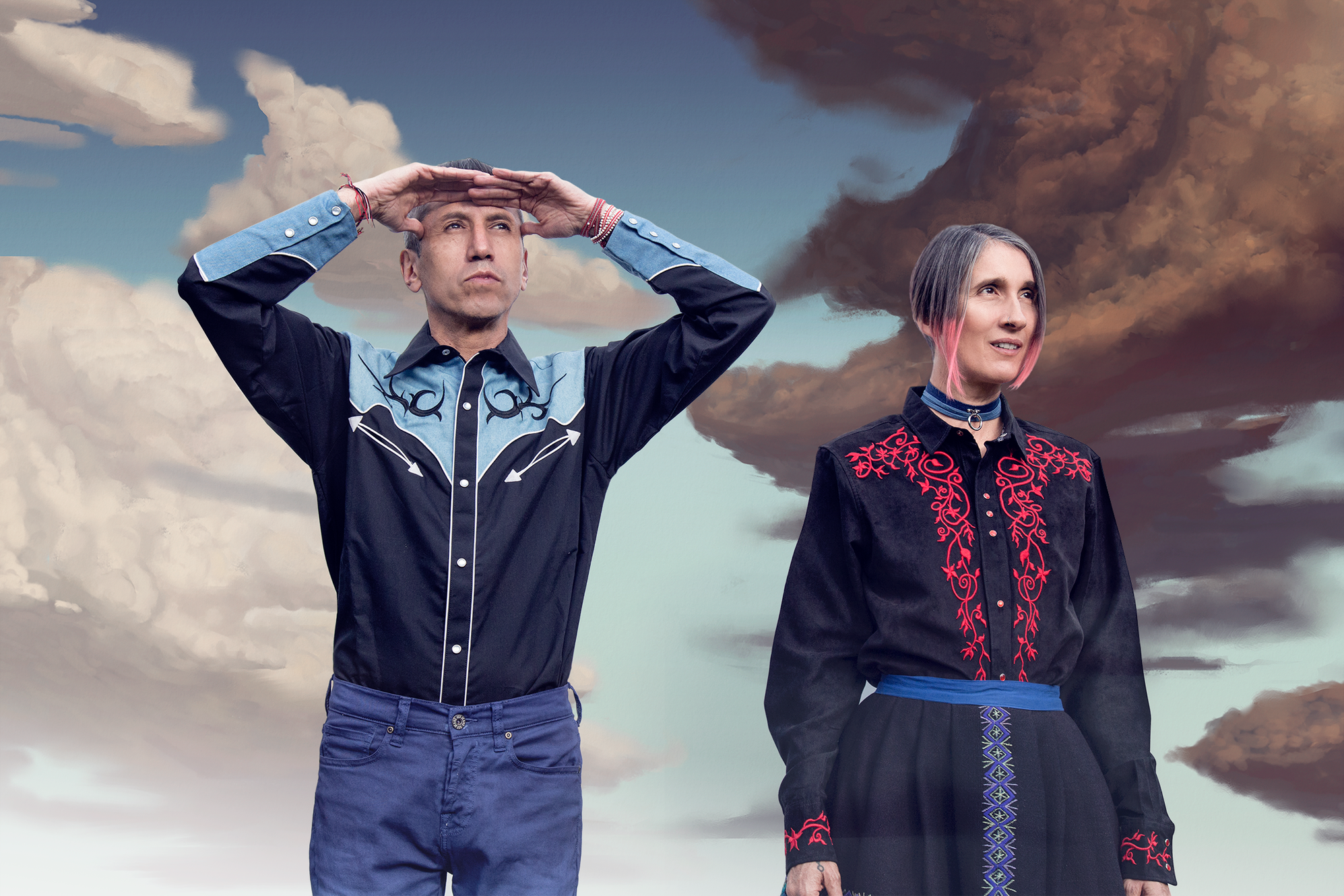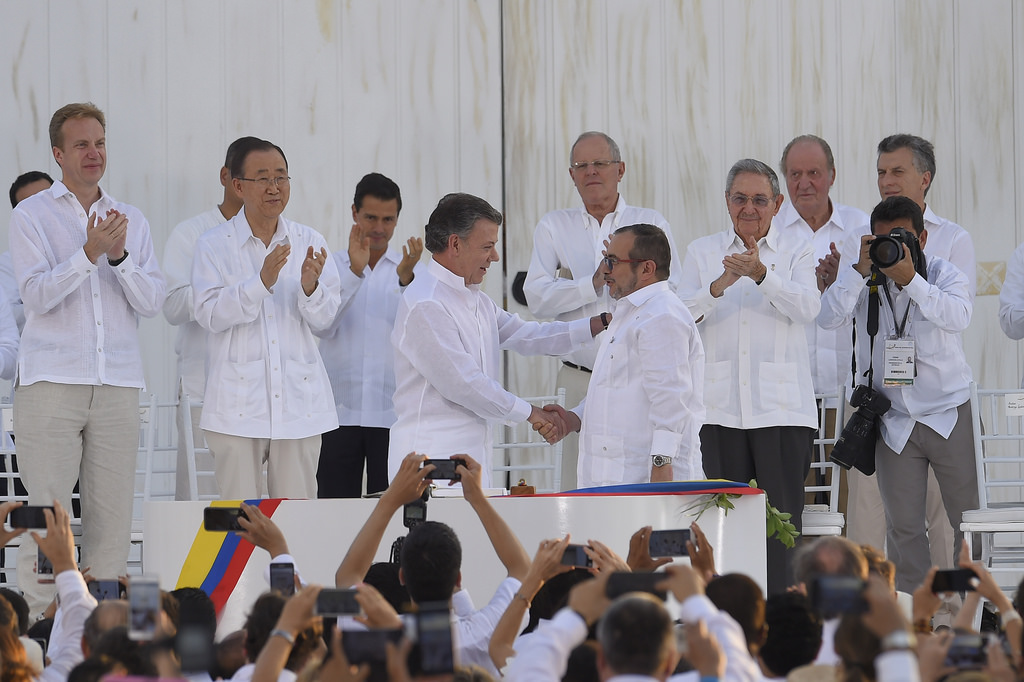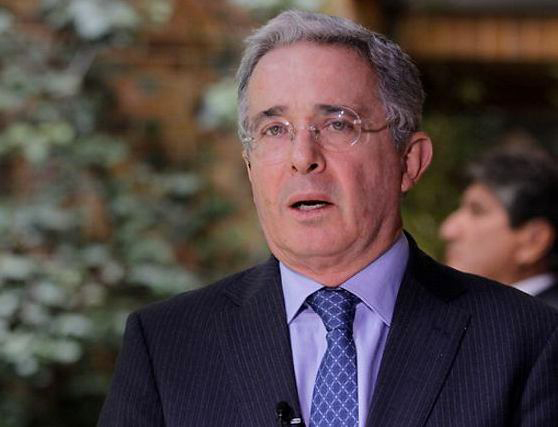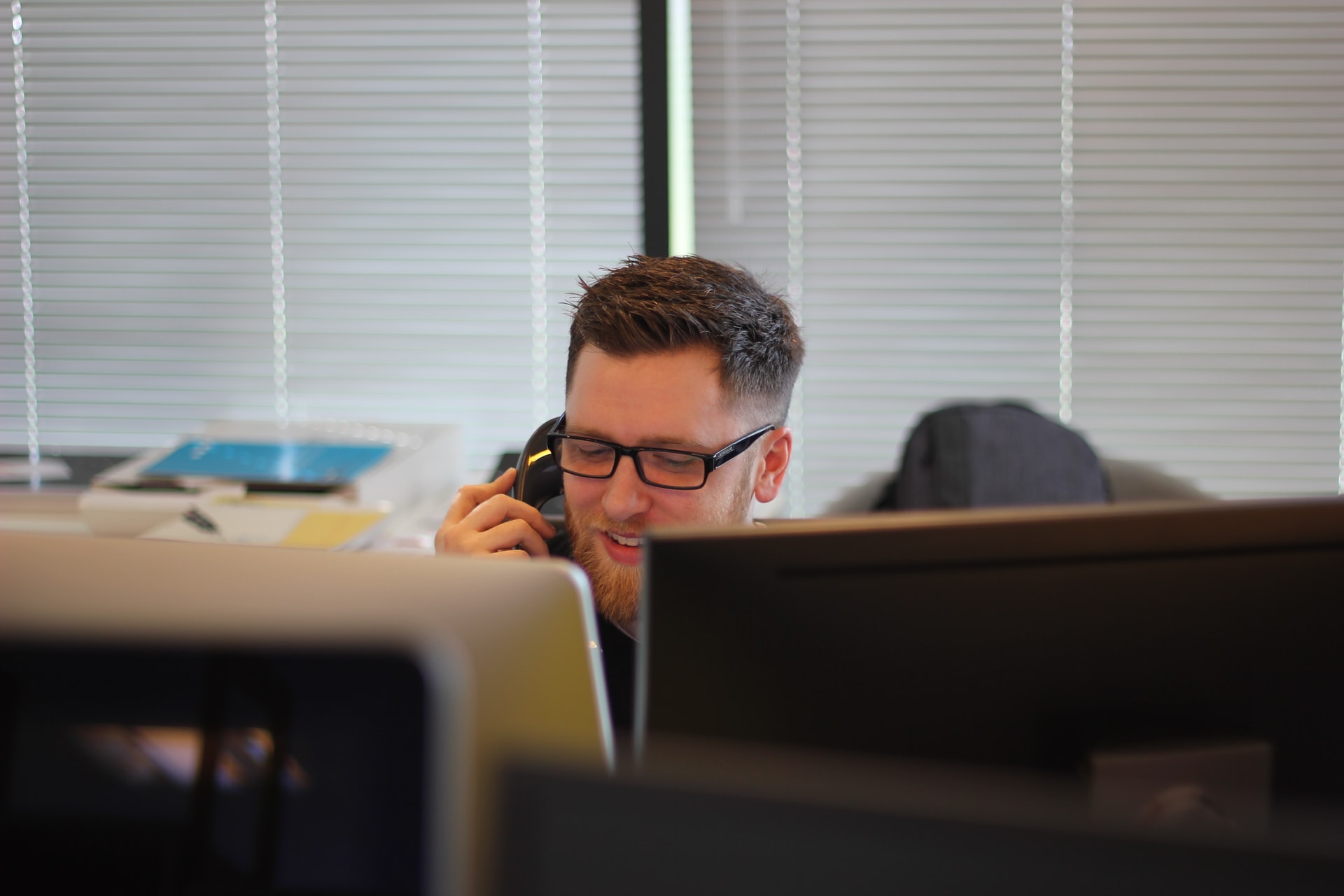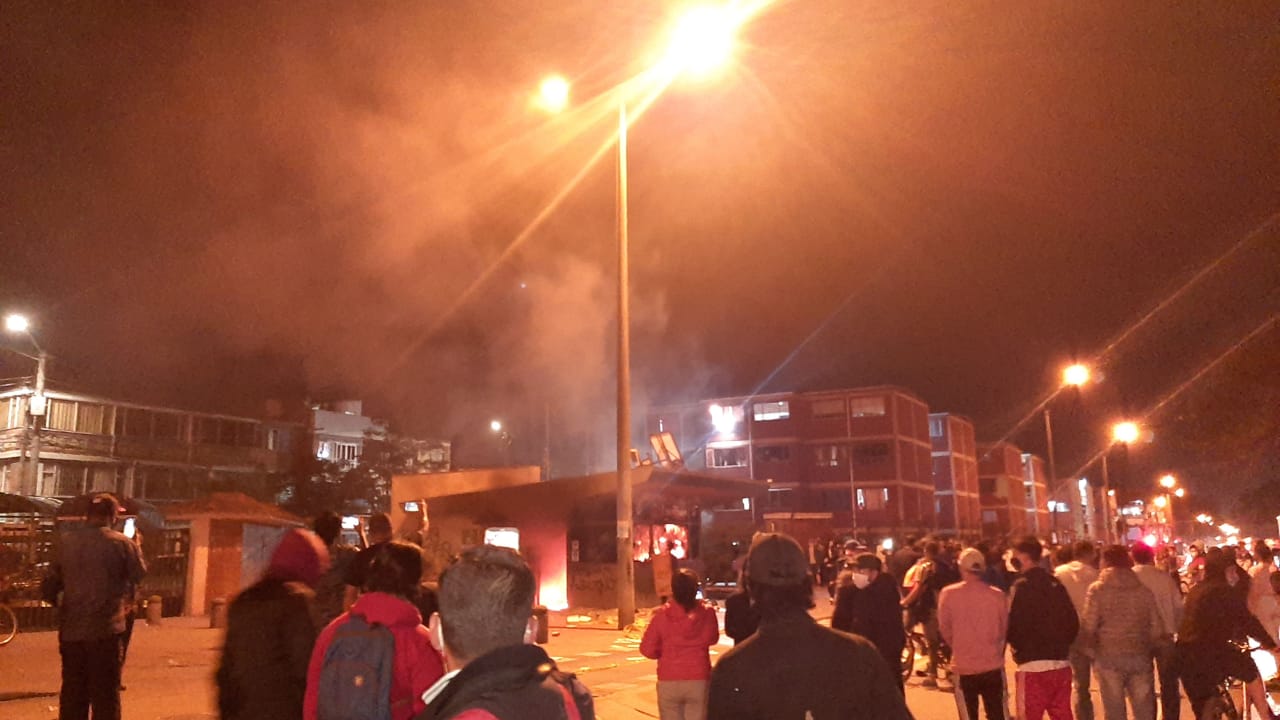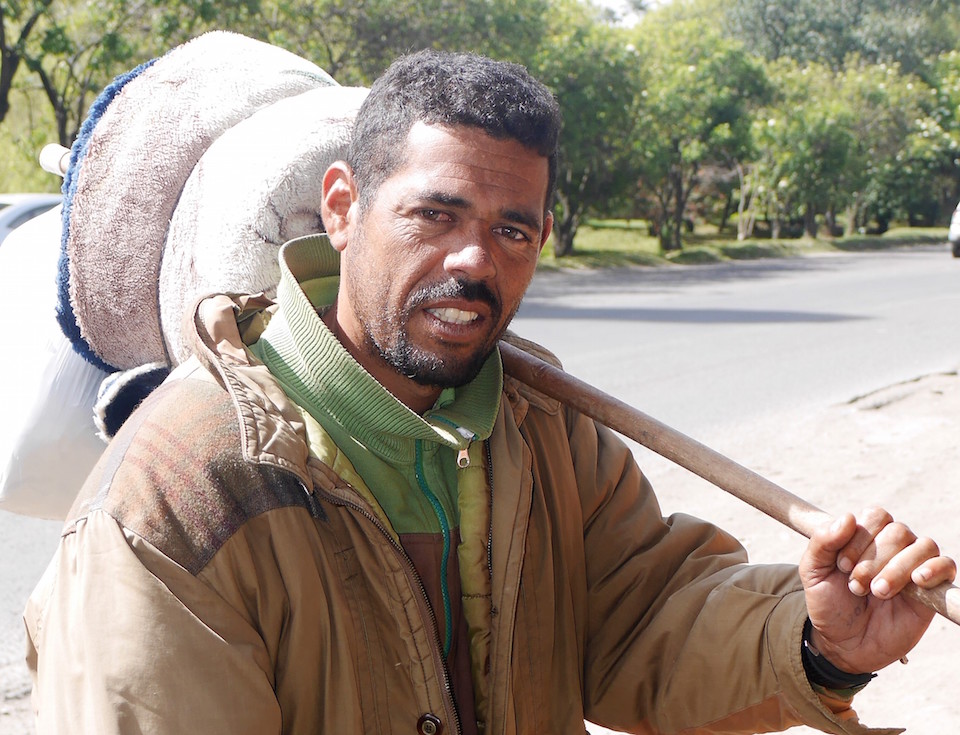
Randy: “We left because there was no food, the markets were empty, even in the field everything had been eaten. We travelled to find hope, but it’s been a hard journey, very cold on the páramo, and walking, walking, walking. We sleep by the roadside.”
As thousands of footsore caminantes walk from the Venezuelan border to towns and cities in Colombia – and beyond – in search of food, medicine and shelter, we speak to some of the arrivals in Bogotá.
“We get food and sometimes a ride,” says one caminante on the Autopista Norte, just outside of Bogotá. At the city’s main bus station rolos are bringing food, blankets, clothes and hot coffee to the families gathered in the park outside. Nearby, a church group has set up a halfway house to give temporary shelter to the most vulnerable families, and cure foot blisters.
Bogotá is no stranger to footsore travellers who arrive clutching a few bundles of their worldly possessions. For decades, the capital has drawn in the destitute and displaced from strife within the country’s own borders. Then came a trickle of Venezuelans seeking a better life as their home country fell into ruin. That trickle has now become a flood, as migrants flee what many described to The Bogotá Post this week as a ‘total collapse’ of their lives back home.
As the regime in Caracas denies the crisis – declaring the exodus of its own people as ‘propaganda’ – we went out in Bogotá and Soacha to talk to Venezuelans and hear their stories.
Read our full coverage of the Venezuelan migrant crisisThis is how you can help: Several organisations can do something with your help.From riches to rags: What happened in Venezuela and why are people leaving?Interviews with Venezuelans #2: ‘I had to leave because I denounced the corruption.’Going Local, Voting with their feet: Columnist worries that goodwill has an expiry date.Compassion and condemnation: The struggle for acceptance in a crowded capital.Crisis is just beginning: NGOs raise alarm over situation for fleeing Venezuelans. |
The tales were of hardship. Leaving loved ones behind. Walking the cold páramo. Hunger and sleeping by the roadside. Being robbed of their few possessions on the way. Some complained of harassment by the police. Many had suffered persecution back in Venezuela.
We were also struck by the cheerfulness and good humour of many migrants. Many had a good word for the Colombians who had helped on the way with gifts of food, clothes or a ride to the next town. Others – those who had been here a while – had temporary residence permits. Some had found work, and even linked up to the health and social security system.
For most new arrivals though, life is precarious – such as those living under plastic sheets by the bus terminals. One youth we met had a knife wound in the stomach. Without any idea how to access health care, he was begging for cash to buy antibiotics.
Some were professionals and traders who had been rejected by overly rigid recruitment processes and forced to sell snack on street corners. Some told us how spiteful Venezuelan border guards had ripped up their passports and other essential documents as they crossed over to Colombia.
Many had no clear plan what to do next or where to go. Maybe Peru, where the rumours are they can find work, or Ecuador, where they can earn dollars. Some said they could not stay in Bogotá ‘because the city is already full’, so they’ll move on.
What everyone agreed was that right now, anywhere is better than home.
These are the stories of Randy, Carlos, Saly, Fiona Shoonobi, José Gregorio and Alexy López
– Interviews by Steve Hide, Todd Wills, Sarah Lapidus, and Daniel Mateus
– Photos by Steve Hide and Daniel Mateus
|
CarlosCarlos won’t tell us his real name, or let us take his picture, but he explains his role in an uprising which forced him to flee to Colombia to seek asylum. The former policeman bussed and walked to Bogotá after two murder attempts in Cúcuta – he claims by Venezuelan agents – and he has three bullet wounds. With his pregnant wife he is an ‘ambulante’, street seller, in Bogotá. “I was a policeman so saw first-hand the oppression. They were killing students and civilians, so I put on a mask and joined the resistance. We got arms – we had to, they were shooting us – and went underground. Many of my friends were killed. It’s a war. When the food ran out, I crossed the border. Over the years I helped many Colombians to find work in Venezuela. But here I am now but not allowed to work, so I sell on the streets. That’s not fair, Colombia should let us work. Even here in Bogotá, I’m not safe, the Venezuelan state has agents everywhere.” |
|
|
|
|

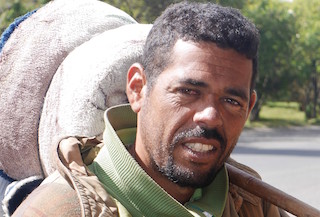 Randy
Randy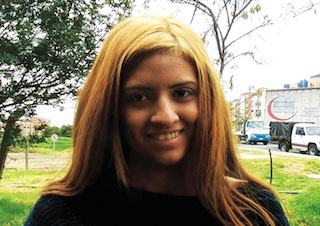 Saly
Saly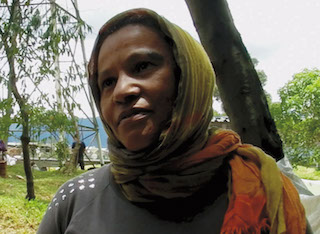 Fiona Shoonobi
Fiona Shoonobi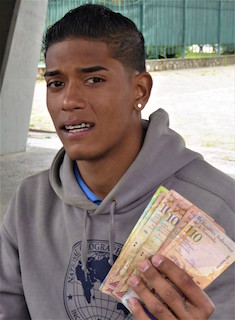 José Gregorio
José Gregorio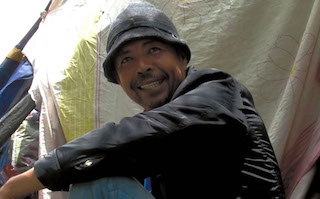 Alexy López
Alexy López